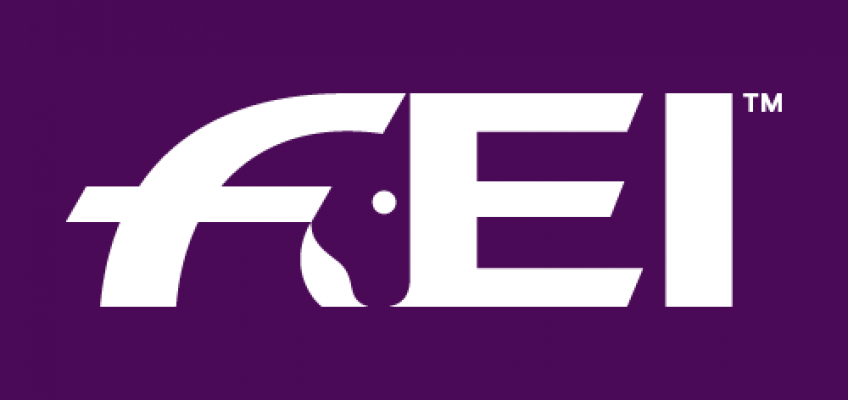The FEI today hosted a stakeholder consultation session to review comprehensive draft Return To Competition protocols. These measures are aimed at, in the short term, minimising the risks associated with the restart of FEI competitions in mainland Europe on 12 April 2021 and, in the long term, increasing biosecurity knowledge, skills and awareness among all FEI stakeholders in order to prevent a recurrence of the devastating EHV-1 outbreak.
The proposed Return To Competition protocols, a number of which are already covered in the FEI Veterinary Regulations or FEI General Regulations, were presented by FEI Veterinary Director Göran Åkerström and generated valuable input from stakeholders. FEI Legal Director Mikael Rentsch discussed the legal provisions for enhanced FEI jurisdiction in the event of a disease outbreak at an FEI Event.
Areas covered in the draft requirements include biosecurity plans and mitigation plans for outbreaks of infectious disease for all FEI Events; mandatory advance PCR testing (for certain designated events only) and temperature monitoring; enhanced Examination on Arrival external to the event stabling area for all horses; athlete self-certification for the health status of their horses; stabling (including isolation stables and restrictions on access); minimising nose-to-nose contact between horses; control of dogs; and the importance of basic hygiene.
The proposals, which received broad consensus from the group, cover pre-event, the duration of the event and post-event.The topic of vaccinations was discussed and the FEI Veterinary Director advised that there are no vaccines which are effective against the neurological form of the virus that has caused the current outbreak. Vaccinated horses have still become sick and, in addition, there are currently very limited supplies of EHV vaccines available in Europe.
In a brief opening address, FEI President Ingmar De Vos reiterated that there will be a full and thorough investigation into the circumstances of the outbreak and that the findings will be published. “Our goal is to learn from this and not to point fingers”, he said. He also thanked participants and the wider community for the incredible team and individual efforts to contain the outbreak.
He stressed the need for continuing to work together. “The measures we put in place – both short-term and long-term – and especially how effective they are, will depend on our ability as a community to collaborate, to agree to the same set of principles and to fully endorse and implement them in each of our respective areas of responsibility.
“This outbreak in Europe has been devastating. But everyone in this virtual room has shown great solidarity so far, and I am confident today will be another milestone in our collective effort to overcome this, to learn from it and to make us stronger for the future.”
Stakeholders who joined the two-hour online session included Athlete Representatives Pedro Veniss (Jumping) and Beatriz Ferrer Salat (Dressage), Eleonora Ottaviani (International Jumping Riders Club), Klaus Roeser (International Dressage Riders Club), Peter Bollen (Equestrian Organisers), Dominique Megret (Jumping Owners Club), Quentin Simonet and Ulf Helgstrand (European Equestrian Federation), together with international grooms Heidi Mulari (Steve Guerdat) and Kirsty Pascoe (Jérôme Guery), and FEI Events Stable Manager Patrick Borg.
FEI Veterinary Committee Chair Jenny Hall was also part of the meeting, alongside the Chairs of the FEI Technical Committees – Stephan Ellenbruch (Jumping), Frank Kemperman (Dressage), David O’Connor (Eventing), Karoly Fugli (Driving), Christian Lozano (Endurance), Pavla Krauspe (Vaulting) and Amanda Bond (Para Dressage). FEI Headquarters was represented by the Discipline Directors, IT, Veterinary, Legal and Communications Departments.
At the conclusion of the meeting, FEI Secretary General Sabrina Ibáñez outlined next steps, advising the group that feedback from the stakeholder consultation session will now be incorporated into the draft proposals. The proposed measures, which were discussed by the FEI Veterinary Committee yesterday, will be further reviewed at tomorrow’s FEI Veterinary Epidemiology Working Group meeting before being finalised and presented to the FEI Board for approval. Bylaws for some of the temporary measures will need to be put in place, and rules for the long-term requirements.
The community will be advised of the new requirements before the end of March in order to allow sufficient time for implementation.


